Editor's Pick
10 Reasons Why The Nobel Peace Prize Is A Lie
Swarajya Staff
Oct 11, 2014, 06:33 PM | Updated Feb 22, 2016, 05:04 PM IST
Save & read from anywhere!
Bookmark stories for easy access on any device or the Swarajya app.
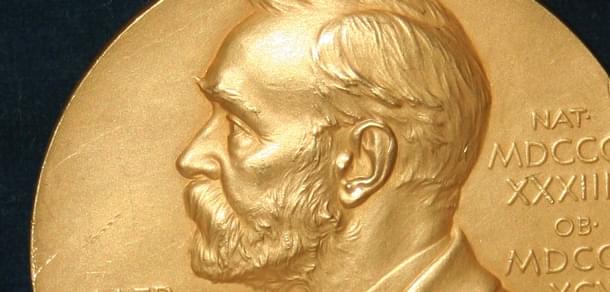
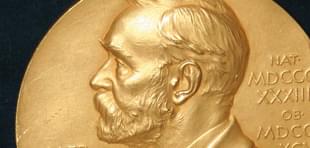
Kailash Satyarthi and Malala Yusafzai have been awarded the Nobel Peace Prize for 2014 “for their struggle against the suppression of children and young people and for the right of all children to education”. While we do not in any way wish to take away any of their remarkable honour and glory, we at Swarajya did take a hard look at the Nobel Peace Prize and the awardees over the last few decades.
On 27 November 1895, Alfred Nobel signed his last will and testament, giving the largest share of his fortune to a series of prizes, the Nobels. As described in Nobel’s will, one part was dedicated to “the person who shall have done the most or the best work for fraternity between nations, for the abolition or reduction of standing armies and for the holding and promotion of peace congresses”. The average age of all Nobel Peace Laureates between 1901 and 2014 is 61 years. Malala, at 17, is the youngest ever winner of any Nobel in any category. Satyarthi is 60.
Here goes: the dubious Nobel Peace Prize Prize winners (the list is not comprehensive, we selected the ones who came to our collective mind immediately).
1. The European Union, 2012
– “for over six decades contributed to the advancement of peace and reconciliation, democracy and human rights in Europe”
The truth: The EU has not been a great success. Far from it.
Forget the Eurozone crisis, and the PIGS economies—Portugal, Italy, Greece and Spain. All of us know about the EU’s desperate scrambling around. Let’s get into slightly lesser known stuff. The EU’s Common Agricultural Policy (CAP) was a hugely inefficient economic policy and a massive waste of money.
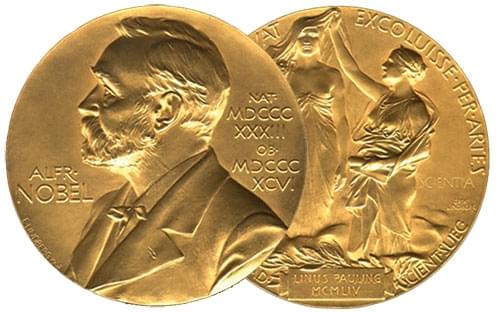
It subsidized farmers to produce goods that nobody wanted. The excess supply was often dumped on world markets creating falling prices and incomes for world farmers. After many years, the worst excesses of CAP have been reformed. But, it remains persistently difficult to end the culture of subsidizing agriculture. The taxpayer pays the burden of higher prices and cost to EU.
Unemployment in the European Union has been persistently high for the past two decades because of its strictly regulated labour market policies as defined in the EU’s social charter.
A survey in 2012, conducted by TNS Opinion and Social on behalf of the European Commission, showed that, for the European Union overall, those who think that their country’s interests are looked after well in the EU are now in a minority (42%). About 60% of EU citizens do not trust the European Union as an institution.
Three Nobel Peace laureates, Archbishop Desmond Tutu, Mairead Maguire and Adolfo Perez Esquivel, protested against awarding the Prize to the EU, writing an open letter to the Nobel Foundation, claiming that the EU was “clearly not one of the ‘champions of peace’ Alfred Nobel had in mind” when he created the prize in 1895, and that the EU does not “realize Nobel’s demilitarized global peace order.”
2. Barack H. Obama 2009
– “for his extraordinary efforts to strengthen international diplomacy and cooperation between peoples”
The award, given nine months into Obama’s presidency, received criticism that it was undeserved, premature and politically motivated. Obama himself said that he was “surprised”. The prize was called a “stunning surprise” by The New York Times.Much of the surprise arose from the fact that nominations for the award had been due by 1 February 2009, only 12 days after Obama took office.
In an October 2011 interview, Thorbjørn Jagland, chairman of the Norwegian Nobel Committee, was asked whether Obama had lived up to the prize, and replied: “Yes, I think so. I’m as convinced as I was when he got it that he deserved it for many reasons. During three months’ time, he…paved the way for new negotiations with the Russian Federation about nuclear arms.
If you look at the will of Alfred Nobel, that goes directly to what he said that the prize should go to the person that has worked for—he called it reduction of standing armies but in today’s terms it means arm control and disarmament…But, there are other things also, which we looked at, for instance, the fact that he started immediately to build bridges to the Muslim world throughout the time.”
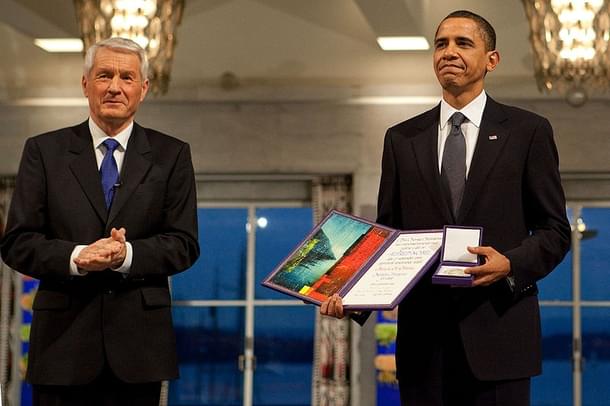
A poll conducted last week by US pollsters Rasmussen Reports shows that 55% of Americans believe that Obama does not deserve the Nobel Peace Prize. In fact, most Americans think that he never should have received it in the first place. Obama supporters, who think that he still does deserve the award, amount to a paltry 26%.
– “for their efforts to build up and disseminate greater knowledge about man-made climate change, and to lay the foundations for the measures that are needed to counteract such change”
The work of the IPCC—headed by Indian Rajendra K. Pachauri, who, astonishingly, has a degree in railroad engineering and no academic qualifications in the environmental sciences—stands discredited today, not because climate change is not occurring, but because of its total disregard for scientific methods, just to prove a politically correct point. All their warnings and claims—the Himalayan glaciers are going to melt by 2035, that Hurricane Katrina was due to global warming—have been laughed out of scientists’ chambers. It is now known that much of the data the IPCC used was fraudulent and due procedures were suppressed.
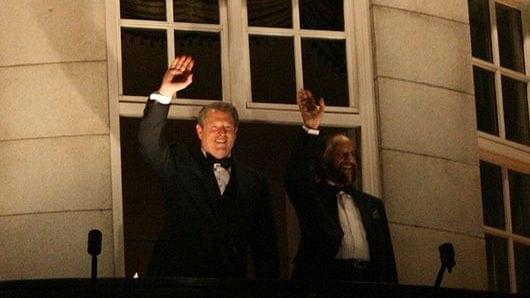
We will quote extensively from a brilliant story done by Open magazine at that time
“There are many casualties in this sad story of greed and hubris. The big victim is the scientific method. This was pointed out in great detail by John P Costella of the Virginia-based Science and Public Policy Institute. Science is based on three fundamental pillars. The first is fallibility. The fact that you can be wrong, and if so proven by experimental input, any hypothesis can be—indeed, must be—corrected.
This was systematically stymied as early as 2004 by the scientific in-charge of the University of East Anglia’s Climate Change Unit. This university was at the epicentre of the ‘research’ on global warming. It is here that Professor Phil Jones kept inconvenient details that contradicted climate change claims out of reports.
The second pillar of science is that by its very nature, science is impersonal. There is no ‘us’, there is no ‘them’. There is only the quest. However, in the entire murky non-scientific global warming episode, if anyone was a sceptic, he was labelled as one of ‘them’. At the very apex, before his humiliating retraction, Pachauri had dismissed a report by Indian scientists on glaciers as “voodoo science”.
The third pillar of science is peer group assessment. This allows for validation of your thesis by fellow scientists and is usually done in confidence. However, the entire process was set aside by the IPCC while preparing the report. Thus, it has zero scientific value.
The fact that there was dissent within the climate science teams, that some people objected to the very basis of the grand claims of global warming, did not come out through the due process. It came to light when emails at the Climate Research Centre at East Anglia were hacked in November 2009. It is from the hacked conversations that a pattern of conspiracy and deceit emerge. It is a peek into the world of global warming scaremongering—amplify the impact of CO2, stick to dramatic timelines on destruction of forests, and never ask for a referral or raise a contrary point. You were either a believer in a hotter world or not welcome in this ‘scientific fold’.
There’s plenty more in this sordid tale. For one thing, there is no scientific consensus at all that man-made CO2 emissions cause global warming, as claimed by the IPCC. In a recent paper, Lord Monckton of Brenchley, who has worked extensively on climate change models, argues: ‘There is no scientific consensus on how much the world has warmed or will warm; how much of the warming is natural; how much impact greenhouse gases have had or will have on temperature; how sea level, storms, droughts, floods, flora, and fauna will respond to warmer temperature; what mitigative steps—if any—we should take; whether (if at all) such steps would have sufficient (or any) climatic effect; or even whether we should take any steps at all.’
An investigation by Dr Benny Peiser, director, Global Warming Policy Foundation, has revealed that only 13 of the 1,117, or a mere 1 per cent of the scientific papers crosschecked by him, explicitly endorse the consensus as defined by the IPCC. Thus the very basis of the claim of consensus on global warming is false. And so deeply entrenched is the global warming lobby, the prestigious journal Science did not publish a letter that Dr Peiser wrote pointing out the lack of consensus.
Thus the earth has warmed at this rate at least twice in the last 100 years and no major catastrophe has occurred. What is more, the earth has cooled after that warming. Why is the IPCC not willing to explore this startling point?”
As for Al Gore, who won an Oscar for An Inconvenient Truth, an alarming documentary about global warming—on 11 October 2007, a day before the Nobel Committee awarded the Peace Prize to the former US Vice-President, the London High Court ruled that there were at least nine ‘errors’ in An Inconvenient Truth, and that the film could not be shown to UK schoolchildren without a ‘guidance note’ that these statements in the film do not follow ‘mainstream scientific consensus’.
4. Muhammad Yunus and Grameen Bank, 2006
– “for their efforts to create economic and social development from below”
Low productivity means that there is no money to invest in things that could increase output. Banks will not lend even the small amounts required to invest in the means to increase productivity because those on such low incomes can provide no security against the loan. Voila! In comes microfinance, and it’s generally accepted that the first example of an organized microcredit institution was Grameen Bank in Bangladesh in 1976, founded by Muhammad Yunus who started by making small loans from his own money at low interest rates to the rural poor around the village of Jobra.
Yunus was removed from his post as head of Grameen Bank by the Central Bank of Bangladesh in 2011 because of his age (70 years). The move was widely seen as a political attack by Bangladesh Prime Minister Sheikh Hasina, a long-term critic of Yunus and Grameen Bank who, she claimed, were making money from poor people by charging high interest rates.
Although it would appear to be self-evident that providing finance for the poorest in society to invest in the means to increase productivity is good for development, there is a problem when it comes to providing evidence of the benefits of microfinance programmes.
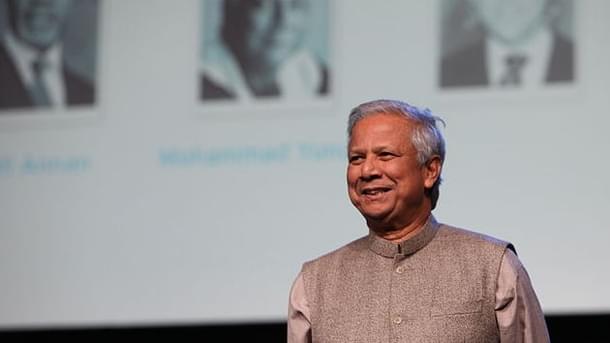
A 2008 study in Bangladesh found that, although the majority of loans were made to women, they were often acting as collecting agents for their husbands. Women had to accept responsibility for repaying the loans that men had spent. This is particularly true for larger loans.
In 2009, MIT economists found that in the slums of Hyderabad, small loans caused more families to start micro-businesses such as sewing saris. Existing businesses saw higher profits. But over the 12 to 18 months the researchers tracked, the data revealed no change in bottom-line indicators of poverty, such as household spending and whether children were attending school.
The cost of servicing these loans is higher than for commercial banks because administration charges for small amounts are higher. Grameen Bank interest rates are typically 20%, but the global average interest rate is estimated at 37%, with rates reaching as high as 70% in some markets.
One of the impacts of high interest rates has been to force poor households into a debt trap. Households borrowing money have to earn more than the interest accumulating on the loan or face increasing debt. The 2008 study in Bangladesh found that some families were using a microcredit loan from one organization to meet interest obligations from another. Officials working for microcredit institutions often had their own wages based on repayment rates from lenders and sometimes used coercion to collect repayments. In some situations, instead of gaining release from the poverty cycle, families were driven deeper into debt.
5. Wangari Muta Maathai, 2004
– “for her contribution to sustainable development, democracy and peace”
Wangari Maathai was the first African woman to receive the Nobel Peace Prize. She was also the first female scholar from East and Central Africa to take a doctorate (in biology), and the first female professor ever in her home country of Kenya. Maathai played an active part in the struggle for democracy in Kenya, and belonged to the opposition to Daniel Arap Moi’s regime.
In 1977 she started a grassroots movement aimed at countering the deforestation that was threatening the means of subsistence of the agricultural population. The campaign encouraged women to plant trees in their local environments and to think ecologically. The so-called Green Belt Movement spread to other African countries, and contributed to the planting of over thirty million trees.
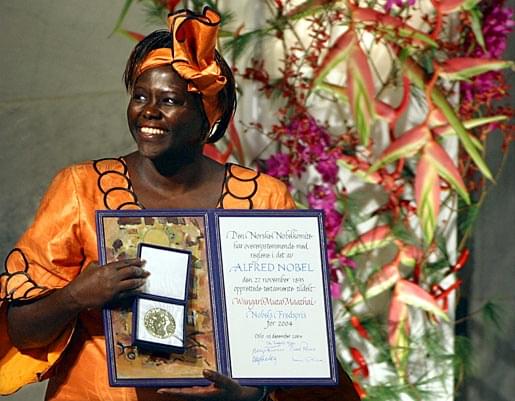
Maathai’s mobilisation of African women was not limited in its vision to work for sustainable development; she saw tree-planting in a broader perspective which included democracy, women’s rights, and international solidarity. In the words of the Nobel Committee: “She thinks globally and acts locally.”
However, she was reported by the Kenyan newspaper Standard and Radio Free Europe to have stated that HIV/AIDS was originally developed by Western scientists in order to depopulate Africa. She later denied these claims, although the Standard stood by its reporting. Additionally, in a Time magazine interview, she hinted at HIV’s non-natural origin, saying that someone knows where it came from and that it “…did not come from monkeys.”
6. United Nations (U.N.) and Kofi Annan, 2001
– “for their work for a better organized and more peaceful world”
The Nobel Peace Prize is announced on the second Friday of October. Which means that the UN and Kofi Annan got the award 34 days after the 9/11 attacks. Enough said.
– “to honour a political act which called for great courage on both sides, and which has opened up opportunities for a new development towards fraternity in the Middle East.”
Arafat’s critics have referred to him as an “unrepentant terrorist with a long legacy of promoting violence”. Kåre Kristiansen, a Norwegian member of the Nobel Committee, resigned in protest at Arafat’s award, calling him a “terrorist”. And Peres and Rabin were hardly peaceniks.
We only have to read or watch media reports on the recent conflict in Gaza to know how much that Peace Prize meant.
– “for his leading role in the peace process which today characterizes important parts of the international community”
We wholeheartedly support this award, though the Nobel Committee may have been delusionary, and Gorbachev certainly did not want to achieve what he ended up doing. Greatness is thrust upon some people. Mikhail Gorbachev is the shining example of that.
Having come to power in a Soviet Union where it was becoming clearer on a daily basis that its Communist economic strategy had been ruinous, that its rigid, wildly inefficient planned economy presented a self-defeating idea, that it was spending unsustainably massive amounts on defence with no hope of ever catching up with the United Sates’ spends (which was exactly what US President Ronald Reagan wanted, to bankrupt the Soviet Union over defence expenditure),
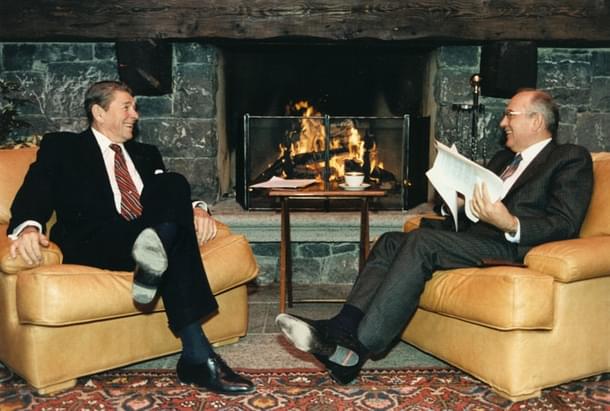
Gorbachev tried opening the doors a little bit—perestroika. Boy, did the doors slam open! Did the winds blow fast and hard! Poor Mikhail Sergeyevich watched helplessly as the entire Soviet structure crumbled, and Lenin’s dream ended, not with a bang, but with a long-drawn gasping whimper.
For being the totally inadvertent—and possibly clueless—instrument of making the world a better place for people to live in, we salute the Big G. Though the Nobel Academy would have been caught as unawares as Gorbachev was.
We could go on. For example,
9. Mother Teresa, 1979.
This “fanatic, a fundamentalist and a fraud” has since been beatified by the Roman Catholic Church. For those who are too lazy to click on that link, or read the late great Christopher Hitchens’ damning expose The Missionary Position, here’s the gist:
“She spent her life opposing the only known cure for poverty, which is the empowerment of women and the emancipation of them from a livestock version of compulsory reproduction. And she was a friend to the worst of the rich, taking misappropriated money from the atrocious Duvalier family in Haiti (whose rule she praised in return) and from Charles Keating of the Lincoln Savings and Loan. Where did that money, and all the other donations, go? The primitive hospice in Calcutta was as run down when she died as it always had been—she preferred California clinics when she got sick herself—and her order always refused to publish any audit.”
And the one case where the Nobel Academy truly outdid itself:
Kissinger, then US Secretary of State, was awarded the Prize along with North Vietnamese leader Le Duc Tho, “for the 1973 Paris Peace Accords intended to bring about a ceasefire in the Vietnam War and a withdrawal of the American forces”. Tho later declined the prize, on grounds that the Paris Peace Accords were not being adhered to in full. North Vietnam invaded South Vietnam in April 1975 and reunified the country whilst Lu Duc Tho was still in government.
Kissinger’s history included the secret 1969–1975 bombing campaign against Khmer Rouge and North Vietnamese Army troops in Cambodia, Operation Condor —a mid-1970s campaign of kidnapping and murder coordinated among the intelligence and security services of Argentina, Bolivia, Brazil, Chile, Paraguay, and Uruguay—as well as the death of French nationals under the Chilean junta.
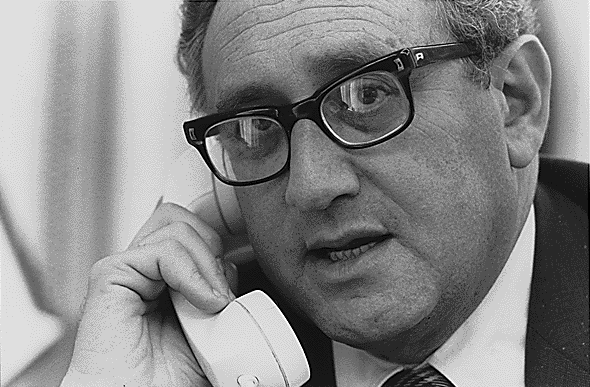
He also supported the Turkish Intervention in Cyprus resulting in the de facto partition of the island. Two Norwegian Nobel Committee members resigned in protest. When the award was announced, hostilities in Vietnam were still continuing.
For further details, read The Trial of Henry Kissinger where Christopher Hitchens (yes, we invoke that excellent razor-sharp mind once more) calls him a “mass murderer” and a “war criminal”.





